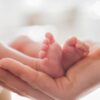Immune aging may contribute to an elevated risk for poor health among people who experience high psychosocial stress, a study in PNAS has found.
“Past data have been limited in estimating the contribution of life stress to the development of accelerated immune aging and investigating mediators such as lifestyle and cytomegalovirus (CMV) infection,” the authors explained in their report.
Around 5,740 American adults over the age of 50 were recruited to assess the relationship of social stress with flow cytometric estimates of immune aging.
Researchers took into consideration terminally differentiated T cell percentages and the ratio of CD4* to CD8* cells.
“Experiencing life trauma and chronic stress was related to a lower percentage of CD4+ naïve cells,” the study unveiled. “Discrimination and chronic stress were each associated with a greater percentage of terminally differentiated CD4+ cells.”
“Stressful life events, high lifetime discrimination, and life trauma were related to a lower percentage of CD8+ naïve cells. Stressful life events, high lifetime discrimination, and chronic stress were associated with a higher percentage of terminally differentiated CD8+ cells. High lifetime discrimination and chronic stress were related to a lower CD4+:CD8+ ratio.”
Overall, the findings established psychosocial stress as a contributor to accelerating immune aging by the fluctuation of terminally differentiated T cells.


